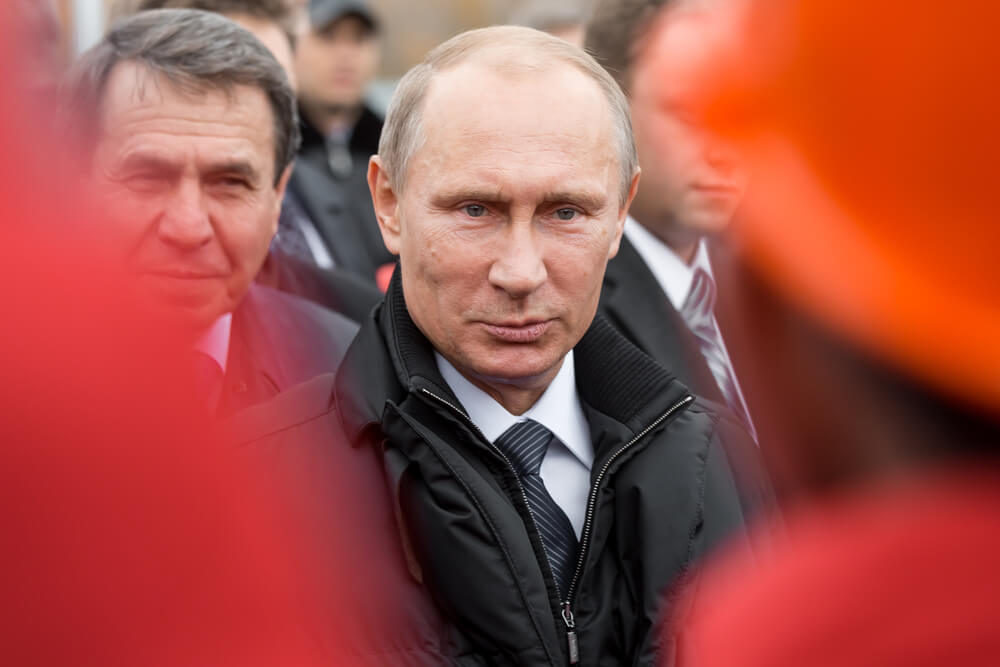Since the 1990s, Russia has been seeking retaliation for its defeat in the Cold War.
The Russians are afraid of the war. However, the Kremlin successfully persuaded the Russians that the fear of war is greater among the people of the West, leading them to believe that the West would eventually concede.
Western politicians and influencers repeatedly used the WW3 bogeyman for domestic political reasons, but in doing so, they were helping Moscow intimidate Western voters.
Moreover, unlike the West, which has no significant influence in the Russian media space, Russia can tell Western voters what to think.
The reason for this is that Russia has allies in both the European Union and the United States. The West, on the other hand, has no visible strong allies in Russia because the West never tried to infiltrate Russia in a manner Russia had been infiltrating the West since the mid-1990s.
Russian resources for the new Cold War
No matter what the Kremlin does to the Russian people, it can rest easy; decades of indoctrination, purges, and reassurance from domestic propaganda that the West will undoubtedly concede in a relatively short period of time will prevent the Russian people from revolting.
Today's Russia can spend 10% of its GDP on the military without the risk of public dissatisfaction, thereby imposing hardship on the Russian people.
For example, the Moscow government could raise utility prices or mandate Russian farmers to sell 8 egg packs to the Russian people instead of the previous 10 egg packs, all while charging a significantly higher price for the 8 egg packs.
Putin's Russia realised that a portion of the Western political class understood Russian deviation and aggressive behaviour
Putin's Russia realised that a portion of the Western political class understood Russian deviation and aggressive behaviour—something the USSR did not enjoy during the Cold War.
Moreover, the West was persistently striving to be inclusive with Russia, aiming to re-establish relations, avoid offending it, and even foster positive relationships with Moscow. During that time, Moscow was building an anti-Western axis around the world.
Activating the Cold War's most terrifying threat
A key moment in Russia's confidence that it could avenge its Cold War defeat came when Moscow's original plan to quickly conquer Kyiv and occupy Ukraine in the first weeks of the aggression collapsed.
At that moment, Vladimir Putin decided to play his nuclear card, the greatest threat since the Cold War.
This was his last card, and it proved to be effective for him. Putin concluded that the West became fearful when confronted with the possibility of Russia using a tactical nuclear weapon against Ukraine.
 Putin concluded that the West became fearful when confronted with the possibility of Russia using a tactical nuclear weapon against Ukraine
Putin concluded that the West became fearful when confronted with the possibility of Russia using a tactical nuclear weapon against Ukraine
Although the nuclear attack on Ukraine would have gone almost unnoticed on the battlefield, Putin expected the West to be frightened, which was risky for Russia as it could have turned India and China away.
Putin then came to the conclusion that the administration's fear of the Republicans accusing it of escalating the nuclear conflict during its mandate would intimidate the White House more than the nuclear threat alone.
That turned out to be true and forced the Biden administration not to push too hard on Vladimir Putin.
The Kremlin believed that the prospect of domestic political partisan storms in America, resulting from Russia's use of a tactical nuclear weapon, terrified the White House.
In anticipation of a new threat
Moscow is also convinced that because of this fear, the White House intentionally helped the Kremlin regain the advantage in the war by enabling the Republicans to halt military aid to Ukraine for six months.
According to the Kremlin, not only the White House but the entire liberal Western political elite were terrified that Russia could shock their voters with a nuclear attack on Ukraine.
This is one of the factors that have fostered the growth of right-wing, predominantly pro-Russian populists around the world. In this Cold War II, which Russia is currently waging against the US and its global dominance, a significant portion of the American political establishment, represented by isolationism, is reluctant to participate.
We can only speculate as to when and against whom Russia might next threaten to use tactical nuclear weapons in Europe or elsewhere
We can only speculate as to when and against whom Russia might next threaten to use tactical nuclear weapons in Europe or elsewhere.
It worked for Russia once. As long as Western politicians fail to explain to their voters that Russia is a global problem that the united West needs to deal with, rather than blaming each other domestically for Russian aggressive behaviour, this strategy will undoubtedly work for Russia again.